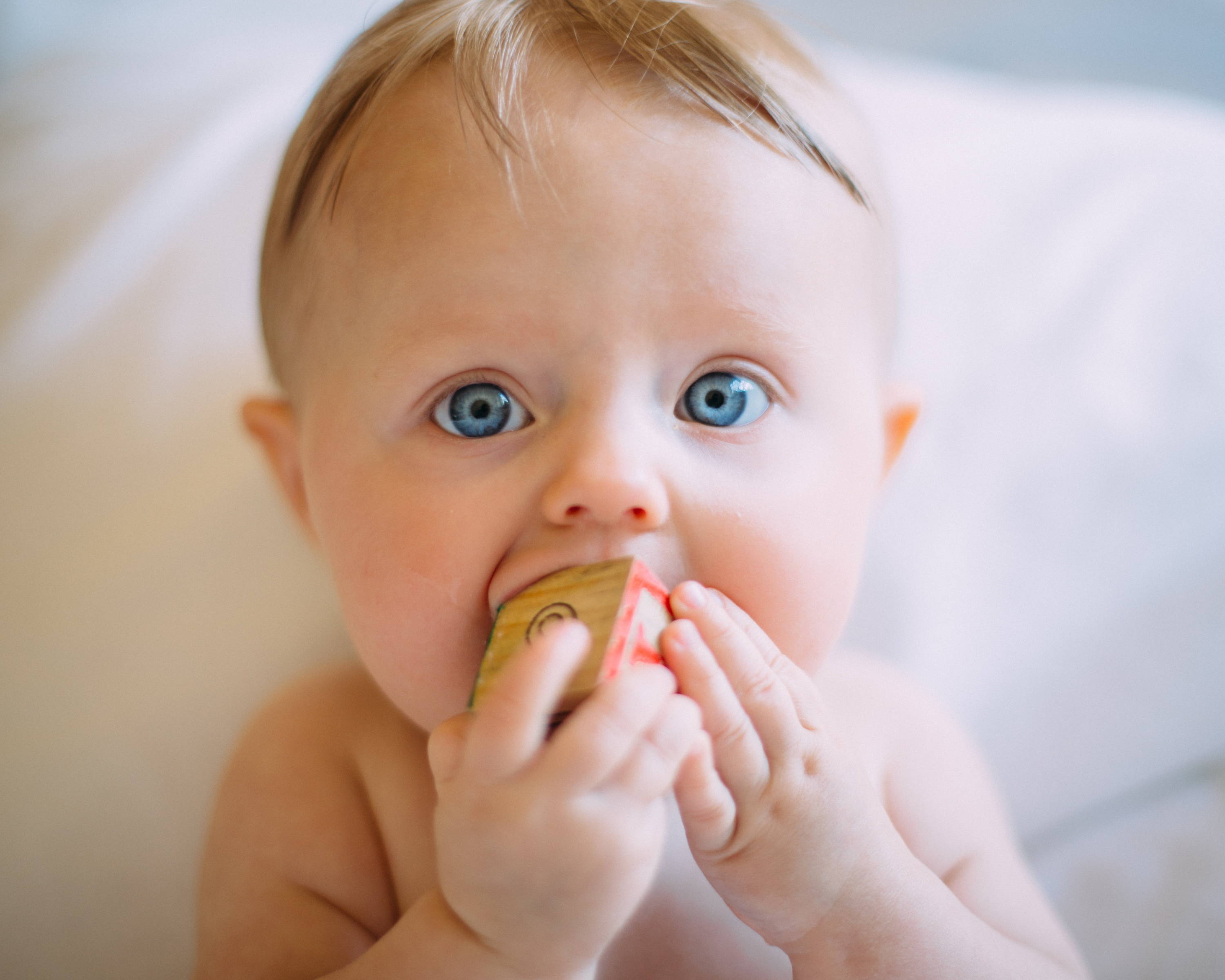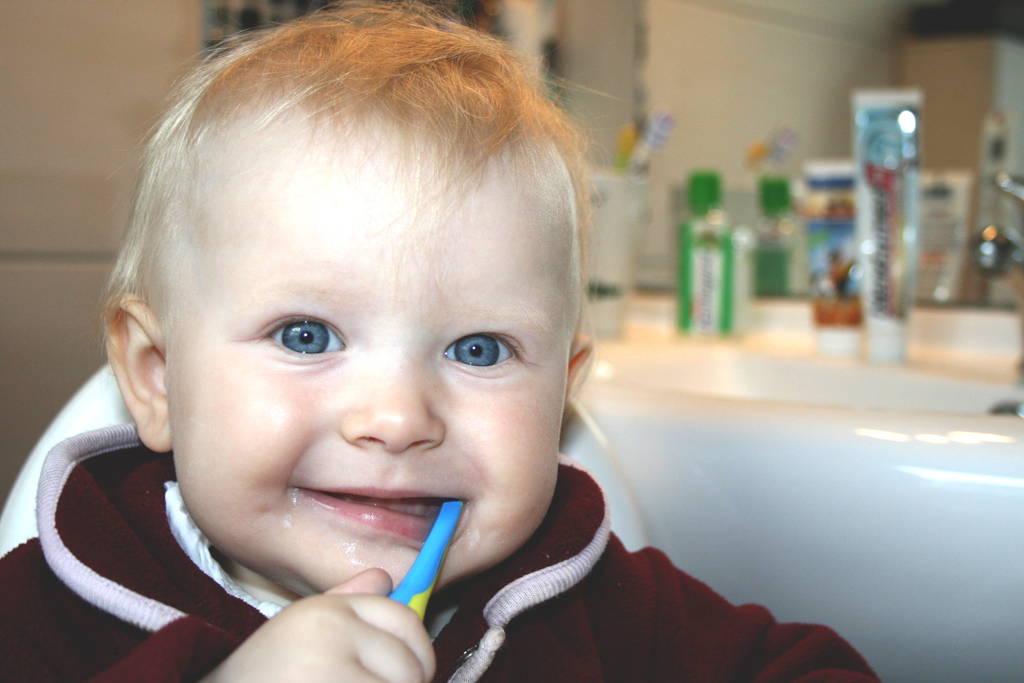The 2021 Ultimate Guide to Baby Teething (Pain, Relief & Care)
What is teething?
Teething is the process by which a baby’s teeth break through its gums, which can often be quite painful.
This post will answer the following key questions:
When does teething start?
Most babies usually start teething around 6 months of age but some early teethers can begin the teething process before they are even 4 months of age, and some late teethers may begin teething after 12 months. The pain associated with teething also starts around the same time.
What are the first signs of teething?
Teething symptoms include painful and swollen gums. Be on the lookout for when your baby wants to place an object or hand inside its mouth, as it may be attempting to find some relief from the pain and is often a sign that your baby is teething.
Is my 3-month-old teething?
While most babies will start to teeth on or after the 6-month mark, there are cases in which “early teethers” start to teeth before 4 months of age.
What are the symptoms or side effects of teething?
Sometimes babies will show no obvious signs or symptoms of teething at all. Other times you may notice:
your teething baby's gum is sore and/or red where the tooth is coming through
one cheek is flushed/red
- they keep rubbing their ear
- your little one is dribbling more than usual
- they gnaw/chew on anything they can get their hands on (including hands!)
- your baby seems to be especially fussy, distressed, or irritated
Fever, diarrhea and rashes are not normal symptoms of teething. Always contact your pediatrician if you're unsure.
How long does teething pain last?
Teething pain is often associated with variable levels of pain during the few days before the tooth breaks through the gum line during the teething process. The entire teething process itself can vary greatly, but most babies usually start teething around the 6-month mark, and most children will have all their milk teeth by the time they are 2 ½ years old.
Baby Teething pain relief

How do you soothe a teething baby?
Teething can be painful and/or stressful for some babies, but thankfully there are ways to soothe and distract them.
Comfort your teething baby
Comforting or playing with your baby can distract them from the pain in their gums. If that doesn’t work try gently rubbing their gums with a clean finger.
Food pacifiers are a great way to both soothe and distract your baby.
You can soothe your baby’s pain by adding frozen milk or ice, or distract them with new (healthy) tastes depending on their age.
For the best of both worlds you can even freeze some fruit/veg for both a soothing and distracting effect.
Teething rings
Teething rings give your baby a chance to chew something safely. This may help soothe their teething gums and distract them from the pain.
Some teethers are made of softer silicone while others are made of a harder material.
You'll probably want to try both to see how your baby responds.
Never tie a teething ring around your baby’s neck as it may be a choking hazard.
Teething gels
Although teething gels do exist, the evidence to support their efficacy is weak. It is often better to try non-medical options before going down this route.
If you do decide to try, then make sure you :
get a gel that is specifically designed for young children
- speak to a pharmacist before purchasing
- avoid unlicensed homeopathic teething gels which have been linked to serious side effects
Paracetamol and Ibuprofen
Painkilling medicine may help ease your baby’s pain if they are 3 months or older. Make sure to get a sugar-free medicine, follow the instructions that come with the medicine, and always consult your GP or pharmacist. Children under 16 years of age should not have aspirin.
Baby teeth care

When should I start cleaning my baby’s gums?
You can start oral care for your baby right away, but at first the care won’t involve a toothbrush or toothpaste.
How do I clean my new-born’s mouth?
Before your baby’s teeth come in, you can start with the following steps:
Get a piece of gauze
- Gently wipe down your baby's gums at least 1-2 times a day
- Prioritise wiping down your baby's gums after feeding and before bedtime
When should I start cleaning my baby's teeth?
You can already start brushing your baby’s teeth as soon as the first tooth comes through. Use a baby toothbrush with a tiny smear of fluoride toothpaste. Your child’s pediatrician may suggest waiting until four teeth in a row have come out or waiting until a certain age.
It’s important to get your baby used to brushing their teeth as part of their daily routine, so starting early is great, even if you don’t manage to brush much at first. You can also make it easier by letting them see you brush your own teeth – lead by example!
How do I clean my baby’s teeth?
Once your baby’s teeth start to come through you can clean them with a toothbrush, but make sure the toothbrush has:
a small head
- a large handle
- soft bristles
Alternatively you can use a finger toothbrush which fits around your finger while cleaning your baby's mouth and teeth.
A finger toothbrush can give you more control than a normal toothbrush which often makes the cleaning process easier, and is great for a thorough clean.
To clean your baby’s teeth follow these steps:
Wet the toothbrush for a few minutes in warm water to ensure the bristles are soft.
Apply a tiny amount of fluoride toothpaste (equivalent to the size of a grain of rice) for toddlers up to 3 years old, and a pea-sized amount for children aged 3-6 years.
- Sit your baby on your knee with their head resting on your chest.
- Brush the teeth in small circles, covering all surfaces, and encourage your child to spit the toothpaste out afterwards. There’s no need to rinse with water as that will wash out the fluoride.
- Brush at least twice a day, ideally one of the sessions being before bed.
When your child is ready to start trying to brush their own teeth, make sure you keep supervising them to be certain that they get the right amount of toothpaste and that they’re not licking any from the tube. Continue to supervise brushing until your child is at least 7 years of age.
